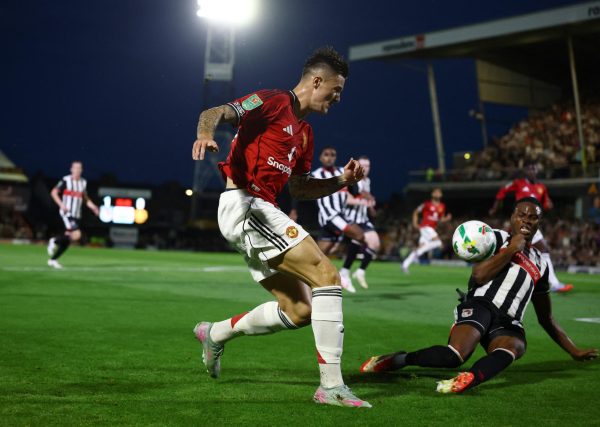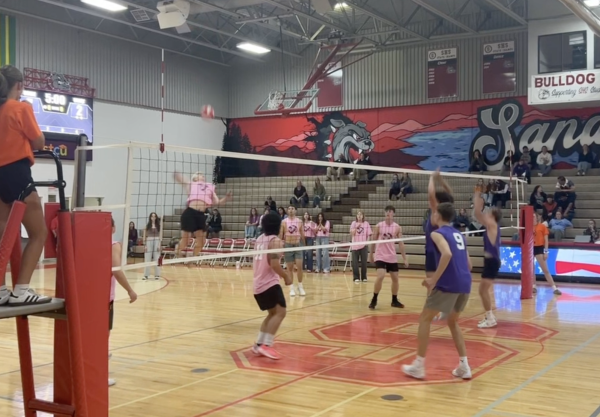MAKING SENSE OF THE MADNESS
8 tips for picking a bracket
Selection Sunday has come and gone, meaning that March Madness has finally arrived. On March 15, the Round of 64 will begin, with millions of brackets filled out by Americans from all corners of the country, each one attempting to achieve the near-impossible: predicting a perfect bracket. While there is no science to filling in a bracket, there are certainly some tricks that people should try in order to be successful.
Don’t pick a 16-seed to win
This is a rookie mistake, because, in theory, a 16 seed winning a game would give you a ton of points for your bracket (many leagues give points based on the seed number, so a 1-seed would be one point and a 16-seed would be sixteen points, because the 16-seed is much more difficult to predict). The only problem with this theory is that a 16 seed has never actually won a game. In fact, they’re 0-132. 16-seeds are unproven teams, sometimes with a losing record, from a conference filled with other bad teams. They then have to go against a team, one of the four best in the country, that oftentimes is made up of future NBA players or college stars who have played multiple other extremely tough teams throughout the course of their season. The chances aren’t high.
Don’t just go with the 1-seed either
As easy as it is to just pick the top teams in each region to advance to the Final Four, this is incredibly rare. In fact, it has only happened once, in 2008. As good as the top seeds are, there is not a significant difference between them and the 2, 3, and 4-seeds, which are also elite teams. Additionally, the 1-seed faces an added pressure of being expected to win, which can sometimes lead to them underperforming. It is common for one to lose in the second round of the tournament to the 8 or 9 seed. Pick the 1-seed to win the first game, but after that, look for them to be upset in the coming rounds.
Go for the 11, 12, and 14-seed upsets
While the chances of a 16 seed winning in the first round of the tournament are astronomical, some other seeds, namely the 11, 12, and 14 seeds, have proven that they can consistently advance to the second round. In 2011, for example, Virginia Commonwealth University made it all the way to the Final Four (the national semifinal) as an 11 seed. In tournament history, a total of three 11 seeds have made it to the Final Four. 11 seeds will not always have this amount of success, but at least one wins almost every year, so it’s always a good idea to pick one. Although the 12 and 14 seeds have not had nearly the same success as the 11 seed, they have also had high success. At least one 12 seed has won in 29 of the last 33 NCAA tournaments, and a 14 seed has won in 17 of the last 32. While it might be unwise to move these teams on past the Round of 32, picking a few to win would be a good move. Some popular upset picks this year are 11-seed Loyola-Chicago, 12-seeds New Mexico State and South Dakota State, 13-seed Marshall, and even 14th-seeded Montana.
Do a little research
How do you know which upsets to pick or which teams are most likely to win? Research. There are a ton of different ways to research the tournament, such as watching tournament preview shows. On these shows, experts who have been analyzing basketball games for the entire season will offer their best projections of what is going to happen and show their personal brackets. If you want to go more in-depth, you can go online to any sports news site, such as ESPN or CBS. There will be articles about high seeds that could go far in the tournament, low seeds that could be upset early, and more Final Four projections. The articles about the upset picks are especially helpful, because often people know very little about the double-digit seeded teams. If you want to go to one really helpful website, check out FiveThirtyEight, which predicts the probabilities of each team advancing in each round.
Don’t show (too much) favoritism
Everyone has their favorite team, and when those teams make the NCAA tournament, they are likely to advance their team further than it should go. This does not apply to everyone’s team, of course. If your team is a bona fide contender, such as Gonzaga, feel free to pick them to advance a few rounds or even win the whole thing, because they have a real shot at it. If your favorite team is, say, 16th-seeded Penn, they’re probably not going to win a single game, much less make a run in the tournament. For the most part, you can pick your favorite team to win a game as long as it’s not a 16-seed, because big upsets happen every year, and there’s no saying that your team won’t be the one to do it. Just don’t pick a 16 seed.
Don’t overanalyze
There’s only so much information you can take in and only so many articles you can read, so there has to be a point where you go with your gut. After you have your bracket filled out, don’t go back and second-guess yourself too much. If you come across something that completely changes your mind, go back and fix it, but if you’re just on the fence about one matchup, don’t change it. Your gut is usually right the first time, so trust that you had a good reason to choose that team and move on. There really is no way to predict what will happen, so don’t overthink your bracket.
Have fun
March Madness is probably the most fun and unpredictable sporting event in the country. If you don’t really care about winning your bracket, have fun with it. Some interesting ways to pick your bracket include choosing winners based on which mascot is cooler or which mascot would beat the other in a fight, flipping a coin to determine each game, giving preference to more local schools, or choosing schools based on how appealing their hometown would be as a vacation destination. No matter how you do it, just enjoy it and let the madness unfold.

Sam Hendricks is a senior and it is his second year on staff. He is a sports editor.








